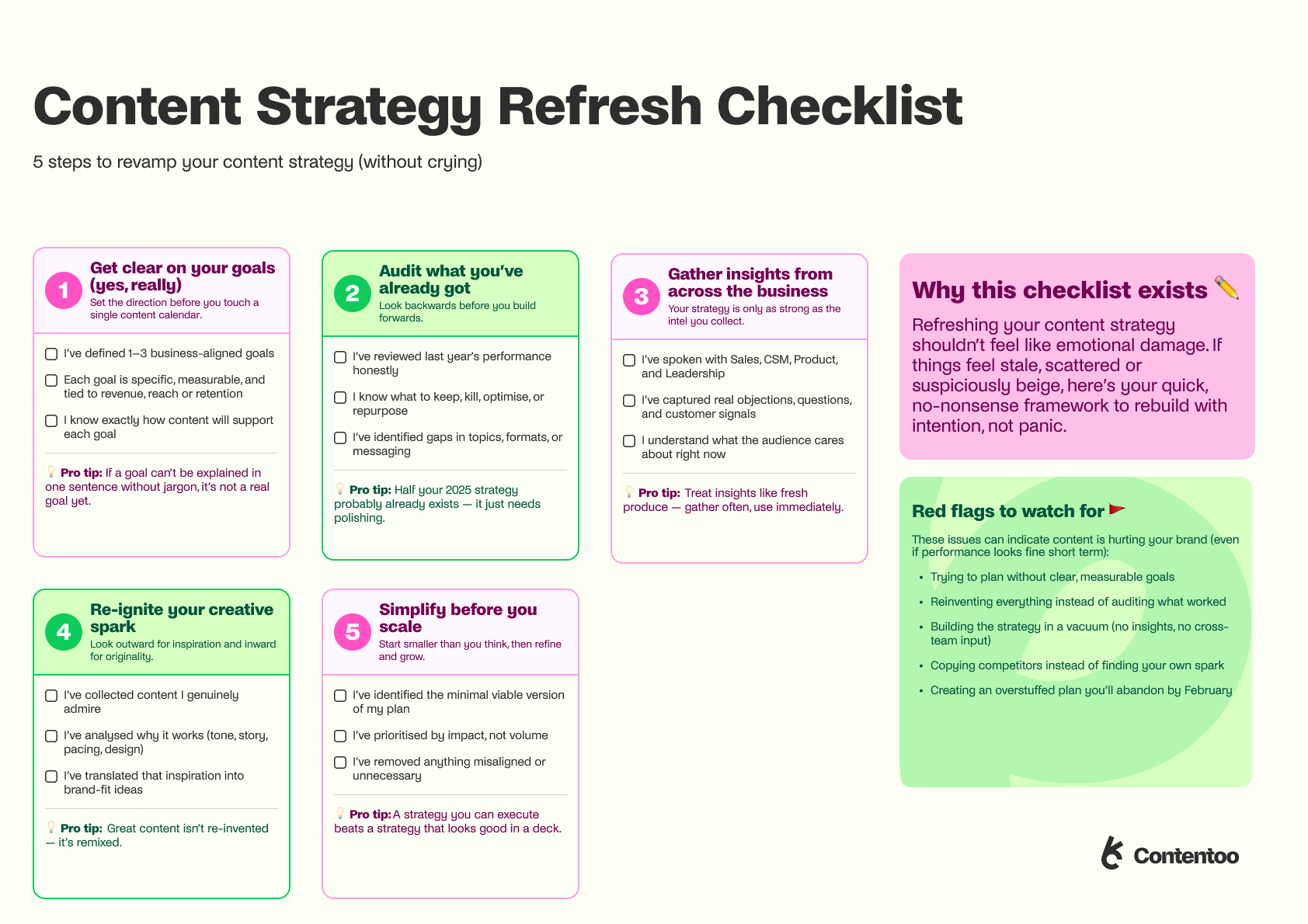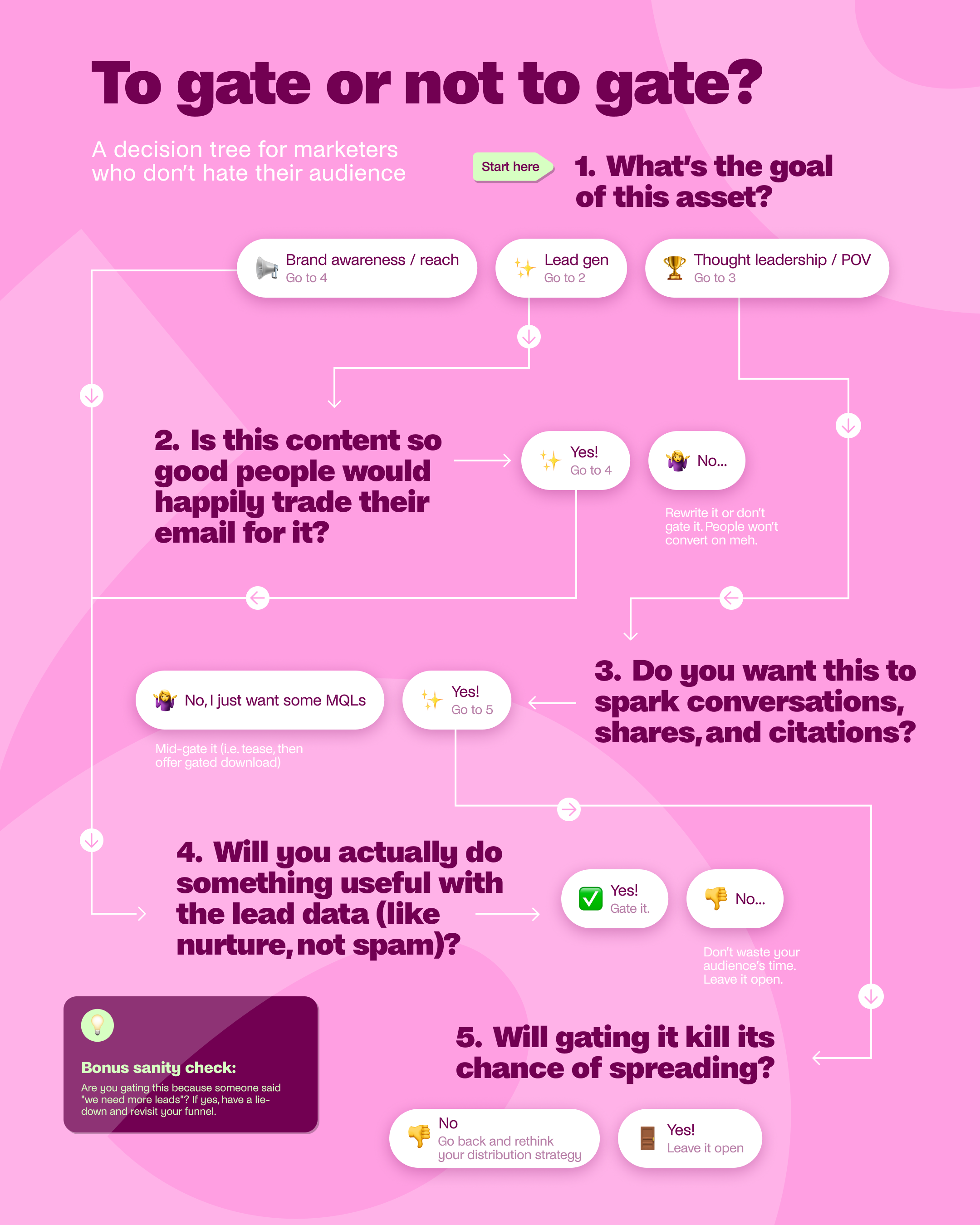Mastering Google E-E-A-T guidelines: elevate your SEO

In Short
Curious about the buzz surrounding EEAT and how it can revolutionise your SEO game? This article is for you. As any marketer or business leader knows, staying ahead of the SEO curve is no longer a choice, it's a necessity.
Enter EEAT – Experience, Expertise, Authoritativeness and Trustworthiness – a powerful framework that has taken centre stage in today’s forward-thinking marketing strategies.
As businesses strive to enhance their online visibility and establish authority, EEAT has emerged as the guiding light, illuminating the path towards marketing excellence and SEO success.
In this article, we'll delve into the reasons why EEAT is more important than ever for marketers and offer some actionable insights to help you to elevate your SEO strategies and get your brand the attention it deserves.
So, without further delay, let’s dive in.
EEAT's vital role in your business strategy
EEAT - Experience, Expertise, Authoritativeness and Trustworthiness - is a concept introduced by Google, and its importance in your digital marketing strategy cannot be emphasised enough.
When you align your sales and marketing activities with EEAT principles, you can strengthen your online presence, attract high-quality organic traffic, optimise customer engagement and position your brand as a leader in your industry.
In the complex world of search engine optimisation (SEO), few concepts hold as much sway as EEAT. These four components lie at the heart of online content assessment, ultimately shaping the outcomes of search rankings and thereby the audience you can reach.
How does this work? Well, in a nutshell, Google's algorithms leverage EEAT to decipher the worth and significance of content. Through a careful analysis of these EEAT elements, Google ensures that users are directed to content that not only imparts knowledge but is also reliable and trustworthy.
Let’s look at each of the EEAT elements in turn and explore how they can impact SEO and your online presence.
Experience: Where user engagement drives success
Experience, the first pillar of EEAT, focuses on user engagement and satisfaction. Google recognises that content that captivates and sustains users' attention is inherently valuable.
Its algorithm meticulously examines factors such as page load speed, mobile responsiveness, and overall design to determine the quality of user experience. Websites that offer intuitive navigation, quick-loading pages and a seamless mobile interface are therefore rewarded with enhanced visibility.
For example, consider a scenario where a user stumbles upon a website offering comprehensive, expert travel guides. The website not only showcases captivating visuals but also boasts a user-friendly layout that effortlessly guides visitors to the desired information, right when they need it most.
This immersive experience not only keeps users engaged but also signals to search engines that the content is valuable, potentially leading to improved search rankings.
Expertise: The bedrock of credibility
Expertise, the second pillar, revolves around showcasing profound knowledge in your niche. Google seeks content that emanates authority and offers readers accurate and well-researched information.
To this end, content creators are encouraged to include credible, cited sources in their articles as well as trusted scientific studies and current industry-specific insights.
A good example of this would be a healthcare blog that aims to establish expertise in the field. By consistently producing articles supported by peer-reviewed research studies, expert interviews and personal experiences, the brand can assert itself as a reputable source.
Google's algorithms recognise this dedication to expertise, which should result in higher search ranking positions.
Authoritativeness: The digital hallmark of trust
In the digital landscape, authoritativeness holds immense value as Google evaluates the prominence of a website or individual based on the quality and reach of its online presence.
Tactics to build authoritativeness could include collaborating with influencers, contributing to renowned platforms and engaging in meaningful industry discussions on platforms like LinkedIn.
To illustrate how this could work in practice, imagine a marketing agency that wants to position itself as a thought leader.
The agency elevates its digital reputation by featuring guest posts from respected figures in the marketing sphere as well as consistently producing thought-provoking content that resonates with a broader audience. Google takes note of this recognition within the industry and may reward the agency with higher positions on the SERPs.
Trustworthiness: The keystone of credibility
Trustworthiness, the final pillar, forms the crux of EEAT. As we have noted above, Google values reliable content which is backed by evidence and supported by real-world testimonials.
Brands can establish this all-important trust by prominently showcasing customer reviews (preferably with named people and businesses), sharing case studies and substantiating claims with credible references.
An example here would be to consider an e-commerce store aiming to build trustworthiness online. By displaying genuine customer reviews, showcasing unedited product photos supplied by customers and providing detailed and useful product descriptions, the store instils confidence in potential buyers and hopefully sees their search rankings improve.
How to amplify your SEO strategy with EEAT
Now, let’s look at how you can incorporate EEAT into your online marketing strategy and boost your SEO.
1. Take a holistic approach to content creation
Always craft content that embodies all the aspects of EEAT we have detailed above, and ensure your content delivers a seamless user experience across all devices and screens.
Choose topics that showcase your brand’s expertise and position you as authorities and thought leaders in your sector. It’s also a good idea to add trust indicators such as client case studies, testimonials and reviews throughout your key commercial pages, as well as online brochures and guides.
If you operate an e-commerce site, consider adding short reviews or links to TrustPilot and other review sites on your product pages. This holistic approach ensures your content resonates with both users and search engines.
2. Comprehensive research
Take the time to thoroughly research your topics to make sure you are providing accurate and up-to-date information. Always cite reputable sources, studies and data to reinforce your content's credibility and expertise.
Well-researched content stands out in the vast sea of information online and establishes you as a reliable and trusted source that visitors will return to, time and time again.
3. Encourage contributions from experts
Where appropriate, consider inviting experts or influencers in your industry to contribute to your content. Their insights and perspectives should lend credibility and authority to your articles and show you are a respected part of your business community.
Additionally, when experts share your content, it enhances its reach and visibility and can help generate reciprocal backlinks.
4. Focus on user-centric design
Providing a great user experience should never be an afterthought. Every time your customers or leads consume your content they should enjoy a seamless, pleasurable experience across all touchpoints, and on all marketing channels.
Make sure your website is intuitive, easy to navigate and mobile-friendly. A positive user experience not only keeps visitors engaged but also sends positive signals to search engines.
5. Create content that will earn high-quality backlinks
We’ve mentioned this above but your overarching SEO strategy will benefit from high-quality backlinks from authoritative and relevant websites.
These backlinks from trusted sources signal to search engines that your content is valuable and trustworthy.
6. Regular content updates
Outdated information can significantly harm your credibility, while fresh updates showcase your brand’s commitment to accuracy and relevance.
Therefore, regularly updating and refreshing your content should always be a priority in your content marketing strategy.
Naturally, it is a real challenge to apply this approach to every piece of content so focus on the content that has already got great engagement or assets that you think should have performed better but could perhaps use - you guessed it - an update.
7. Engage with your audience
Always take the time to respond to user comments and engage in discussions around your content. Meaningful interactions demonstrate your commitment to addressing user queries and fostering trust.
8. Monitor your brand reputation
Keep an eye on online reviews, comments and mentions of your brand. Address negative feedback promptly and transparently to maintain a positive online reputation and show your customers that you care.
9. Focus on E-E-A-T for YMYL content
For Your Money or Your Life (YMYL) content, such as healthcare or financial advice, adhere rigorously to EEAT principles. These pages are closely scrutinised by search engines and readers alike, so maintaining high standards is crucial.
10. Consistency is key
Always consistently produce high-quality, informative and accurate content that genuinely serves the needs of your target audience. Consistency should reinforce your authority and expertise over time.
11. Leverage social proof
If you have received recognition for your services or products, why not shout it for the rooftops - in a professional manner, of course! Consider highlighting social proof such as awards, certifications and testimonials, to help bolster trust and authority and showcase your credentials and industry affiliations or memberships prominently.
12. Collaborate and network
This follows on from our previous point about encouraging content collaboration with industry experts. Whether you are in B2B or B2C, building long-lasting relationships within your industry by collaborating with influencers, participating in webinars and attending conferences is a good idea. Networking enhances your credibility and authority and it can also introduce you to new business or recruitment opportunities.
13. Stay abreast of industry trends
As a business leader or marketer you should continuously update your knowledge and stay informed about developments and trends in your industry. You can then share the latest insights that position you as an industry thought leader.
Boosting your SEO and online presence with EEAT
We hope this article has equipped you with the knowledge you need to get started with boosting your SEO with EEAT.
As Google continues to refine its algorithms, EEAT's significance is highly likely to grow, making it an indispensable tool for those seeking to achieve and maintain optimal search ranking positions.
By incorporating these tips into your strategy, you're not just optimising for search engines, you're creating a credible online presence that resonates with your target audience.
EEAT's significance lies in its ability to align your digital efforts with principles that emphasise credibility, relevance and trust. As you navigate the sometimes challenging landscape of SEO, let EEAT be your compass, guiding you toward a stronger, more impactful online presence.
If you would like to find out how Contentoo’s team of freelance experts can help you get your content in front of your ideal customer and grow your online reach, contact us today. We would love to help.












.webp)
